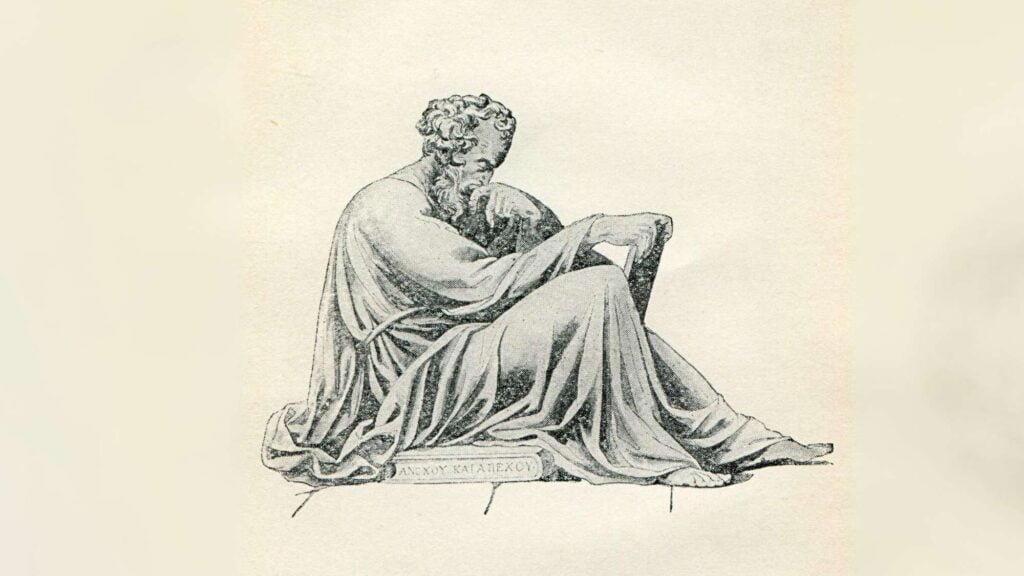

We are all familiar with that moment in the doctor’s office, whether it’s receiving difficult news or simply discussing options, but not many of us consider Greece’s stoic philosophy during that time, do we?
However, if we stop and wonder how doctors approach that conversation and how they handle the weight of it all, we will come across a surprise. It probably doesn’t come to mind, but tucked away behind the diplomas and the medical tech, there is a connection stretching back centuries to the Stoics in ancient Greece and Rome.
Yeah, those philosophers were famous for keeping a stiff upper lip. It turns out that thinkers like Seneca, Epictetus, and even Emperor Marcus Aurelius (yes, that Marcus Aurelius) had ideas about life, nature, and our place in the world that quietly but surely managed to get into the foundations of Western medicine, the type of medicine we all know today.
The Stoics of ancient Greece looked at the universe and saw an underlying order, a kind of natural intelligence they called the Logos. They figured wisdom wasn’t about fighting nature tooth and nail, but understanding its patterns and working with them. For an ancient physician, this meant seeing their role differently from everybody else. Not always the hero charging in to defeat illness and potentially death, but often the skilled helper, giving nature a nudge, supporting the body’s healing efforts; a companion to a hard-wired aspect of every human’s existence.
Reason was key, and that transition from fantasy to reality created modern medicine. Not just for diagnosing issues, but for seeing the bigger picture. Understanding how an illness might play out, knowing the limits of what medicine could do, and having the courage and compassion to talk straight with patients. The philosophical approaches to medicine from ancient Greece and Rome were not simply about giving up hope. It was about being realistic and putting effort where it counted and could make a difference in a patient’s life.

Here is where it gets fascinating for doctors, then and now. The Stoics taught that real happiness didn’t come from external elements like health or wealth (those things are nice, but life can snatch them away). True well-being came from within—from living virtuously, focusing on what you can control: your actions, your character.
For a physician, this meant a deep-seated sense of duty. You treat the patient to the best of your ability, with fairness and courage, because that’s the right thing to do, period. End of story. Whether the outcome is good or bad isn’t the ultimate measure of their success as a person.
And they had this concept, apatheia, which sounds like apathy, but meant emotional balance, away from exaggerations and the heat of the moment. Not being cold or unfeeling! Think of it more like not letting your emotions hijack your reason. A doctor influenced by this ancient Greek philosophical approach could care deeply and show real compassion, but hopefully, avoid being completely overwhelmed by the suffering they saw daily. Imagine Marcus Aurelius trying to lead Rome through a plague; he couldn’t afford to crumble, could he? That inner steadiness was crucial, and it’s what made modern medicine what it is today.

Okay, fascinating history lesson, but so what? Well, think about the issue of “informed consent.” We expect doctors to lay out the facts, respect our ability to reason and make our own choices. That idea of respecting the patient’s rational mind is what we could describe as pure Stoicism.
Or consider the whole field of palliative care. It is mainly about quality of life, dignity, and accepting limits when a cure isn’t possible. That is a modern reinterpretation of the Stoic understanding that we must work within the realities of nature, within what’s realistic and achievable, not what we hope to achieve.
And physician burnout? This is indeed a massive crisis that began millennia ago and still affects our societies. The Stoic toolkit offers ways to cope: focus on your effort, not the uncontrollable outcome, which is far beyond your reach; build that inner resilience; find meaning in the duty itself, rather than the results-driven frenzy of our time. When doctors grapple with impossible choices or face tragic situations, that old Stoic balancing act, between doing your duty, accepting reality, and acting with integrity, often plays the most important role of them all in the background.
It is not about ancient remedies and myths; it is about character. Blending science with wisdom, empathy with emotional strength, and philosophy with reality. Maybe the next time you’re talking with your doctor, you’ll sense it—that quiet, centuries-old idea from ancient Greece and Rome, telling us that healing is more than fixing. It is about living life, whether healthy or ill, with reason and patience. A little bit of ancient Athenian wisdom might be present in your next appointment with your GP.
